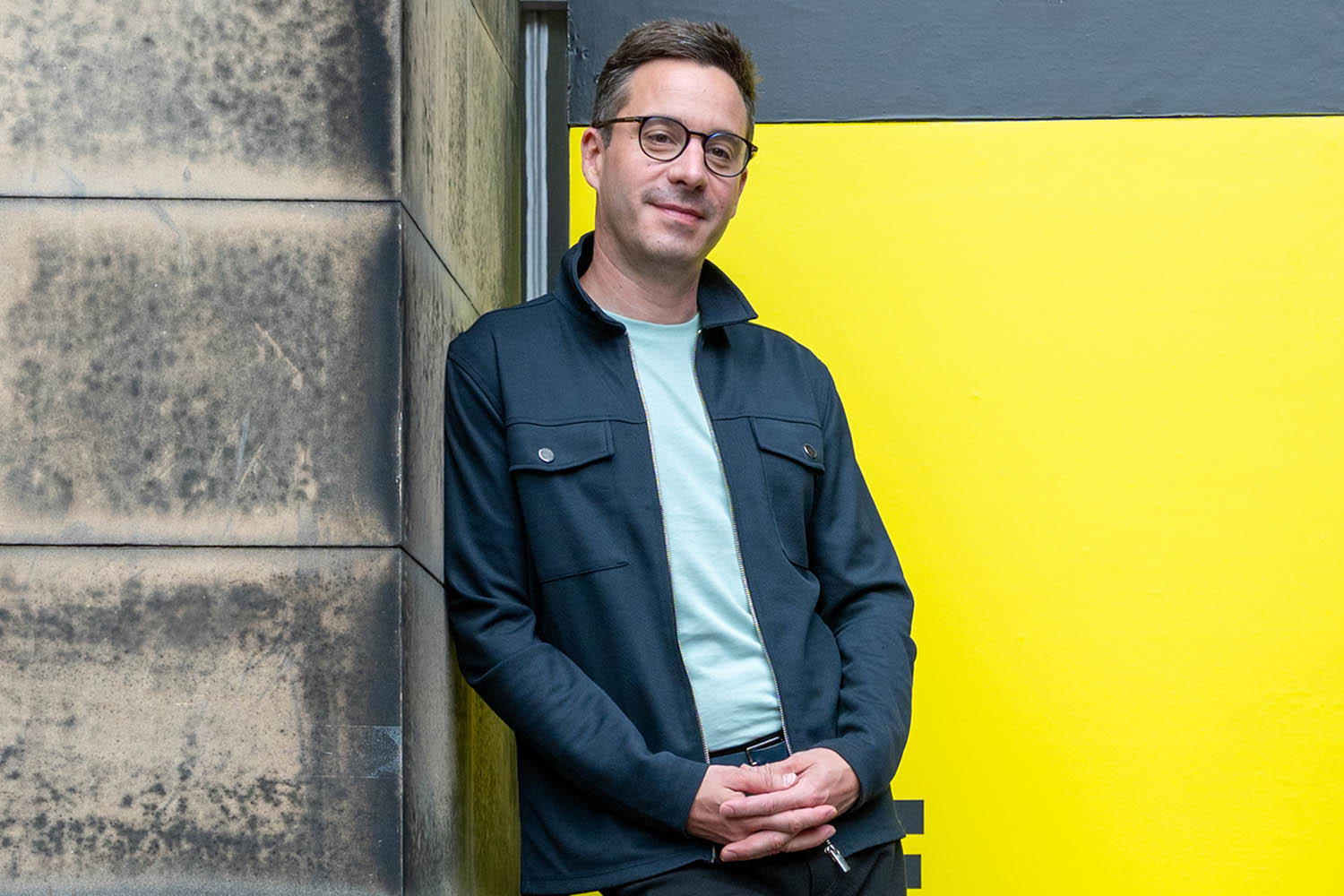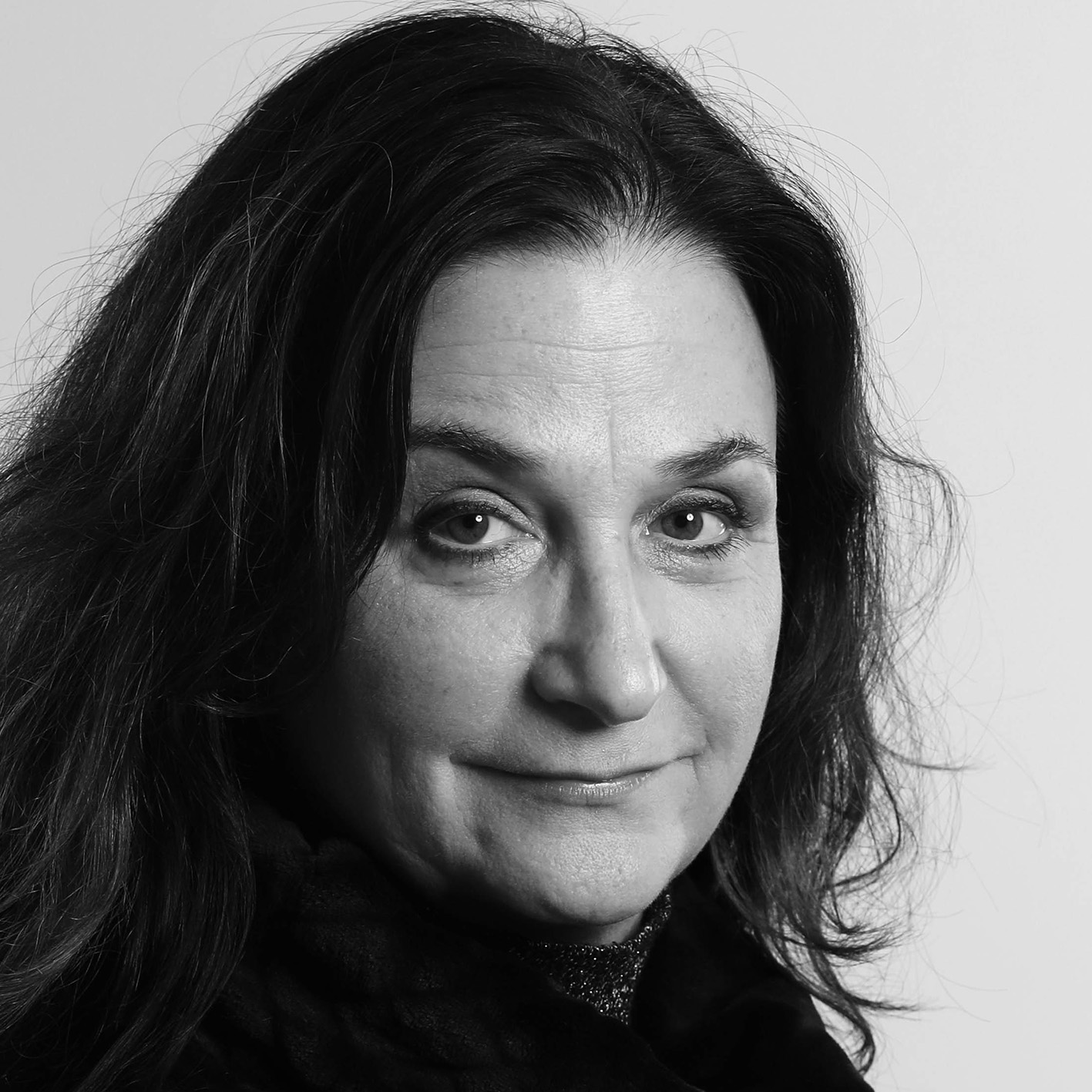James Graham is an Olivier award-winning playwright with a knack for making political conflict entertaining, from his breakthrough play This House to 2017’s Labour of Love and recent TV drama Brian and Maggie. Last year, Graham won his second Olivier award for Dear England, a play about Gareth Southgate’s tenure as manager of the England football team. His new play, Make It Happen, is a biting satire about banking starring Succession star Brian Cox, which premieres this week at Edinburgh international festival.
Make It Happen looks at the financial crash of 2008 through the lens of 18th-century economist Adam Smith’s theories, pitting capitalism against morality. Is that the most fundamental ideological clash in your work so far?
Different sides claim Adam Smith as their own, but he is more widely recognised by the right, both in American and British thinktanks. And, of course, Margaret Thatcher referenced Smith very directly as the philosophical and intellectual basis behind free markets and low taxes. Before the commission for this play, I thought much the same about his ideas. But that is when I came across the actor Brian Cox’s passionate view that Smith, who he plays, has been misrepresented. He feels Smith came instead from a more Gordon Brown kind of Scottish tradition; a tradition of social economic justice, community and sympathy for others.
And when it comes to staging political arguments, I think that, particularly in this age of digital fragmentation and siloed opinions, it’s salutary to remind yourself that your own opinion is completely contradicted by the other side – and then to have some curiosity about that.
Was it important to open the show in Edinburgh because of the city’s part in the story?
This is a story for Edinburgh. When I was here 23 years ago, up from Hull University with a student play, I remember seeing a statue of Adam Smith and asking who he was. And now, here we are!
I hope Edinburgh also feels like a character in the play. The marketing line is that the financial crash had a Scottish accent and not an American one, and that’s true. The Royal Bank of Scotland was the biggest bank in the world, so the crash shook Edinburgh and its image of financial prudence. It was like a mining town with the bank’s headquarters up on the hill. Everybody just looked away, without asking how something could grow so big so fast.
What appealed about having Adam Smith haunt the Royal Bank of Scotland’s disgraced former boss, Fred Goodwin, telling him he has his theories all wrong, in spite of being a kind of superfan?
I have no idea if Fred Goodwin really was obsessed with Adam Smith. I invented that. But Goodwin arrives at the bank as an outsider, a west coaster from Paisley, and he represents a new kind of ruthless, global banking.
Smith was a moral philosopher, not an economist. He wouldn’t have recognised that word. But it is true that his theories are 100% about free markets. He believed in individual liberty and freedom, and in the power of the market, so I am not pretending Smith was a Corbynite or a Marxist. But where people do get him wrong is that he also believed in government. He felt it should protect people and educate them. He believed in society and community.
All this is set out in his key work, The Theory of Moral Sentiments. He is better known for The Wealth of Nations, but that book really just describes how markets work rather than endorsing them. Obviously, though, all that is dry as fuck. For a play, I had to find a story.
Brian Cox is a big stage presence who has played some domineering men, not least Logan Roy in Succession. But your spectral version of Adam Smith doesn’t cut the dour and dogmatic figure we might expect.
I was interested in the mischief of getting Brian Cox into an Edinburgh auditorium to reclaim Adam Smith for the centre left. I didn’t know I was going to write a ghost play, but it suddenly made total sense. It elevates it into a kind of moral fable; something more mythic than I’d first imagined. The director, Andrew Panton, and I deliberately leaned into Brian’s silly side. We got to unleash him. And he is glorious and naughty. He hasn’t appeared on the Scottish stage for decades and, taking the preview as a marker, the audience really enjoy seeing him do it.
I am always alive to their experience, as I expect most playwrights are, and I felt this could have a sense of “event” about it. You can never guarantee it, of course, and I hope it is not too tarty or populist to try to design a reaction like that.
The plays Enron and The Lehman Trilogy were unlikely theatrical hits set in the world of finance. Were you worried about making a story about money work on stage?
For me, it is less a play about finance and more one about culture. And theatre does concepts surprisingly well. It can hold ideas in its head probably better than a television drama.
I’m also increasingly aware that most of my plays are like sports movies, where you basically have someone coming in with a quest, or a mission, to disrupt things. And sometimes that is a good thing, like the moving Gareth Southgate project I wrote about in Dear England. But Goodwin’s was a dark, dangerous and flawed mission that had the wrong intentions.
You famously have lots of projects on the go at any time. This week you’re working on the new film version of Dear England as well as rehearsals in New York for the Broadway production of your play Punch. Do you ever have trouble switching from one subject to another?
No, but I have started to realise there are crossover themes and anxieties in my plays, so I’m asking myself why I come back to them. I think it’s because, like many people, I’m anxious that the country does not seem happy at the moment. Modern Britain has probably always been in an existential crisis, looking for a new identity, but increasingly, whether it is the England football team or the banking structure, it’s not sure what the next story is. After the financial crash, unlike other historic moments of great turmoil, there was no reset. Instead it has got dark and weird.
Would you consider being involved in shaping a political story in real life? Have you helped write speeches for Keir Starmer, or for his cabinet?
No one has asked, although I sometimes find myself in those circles. I would, but there might need to be a new project I felt excited about. We need a story and I don’t know if Keir Starmer has one yet.
I am not saying I agree with the Labour policy about cancelling winter fuel payments, but there is at least an intellectual case to be made. It’s a policy that needs a good storyteller, because it is difficult to hear. They needed someone saying, “We do not have enough money to do what we want to do and it is not right that rich people should be subsidised when young people don’t have enough money to pay their rent. Shall we do something about that, or not?” I didn’t hear enough people explaining this, and if you don’t turn up for the argument, then people just think you are terrible for taking money away from pensioners.
Make It Happen runs at Edinburgh’s Festival theatre until 9 August. Punch runs at the Apollo theatre in London from 22 September to 29 November
Newsletters
Choose the newsletters you want to receive
View more
For information about how The Observer protects your data, read our Privacy Policy
Photograph by Getty Images

